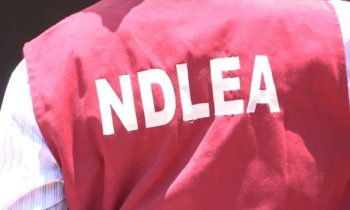
Federal Government said it would open a micro LNG plant in Owazza community in Abia in the next 12 months, producing LPG right in the village.
This is just as the Nigerian National Petroleum Corporation Limited (NNPCL) says it is partnering with India and other stakeholders to enhance the accessibility and affordability of liquified petroleum gas (LPG) in Nigeria.
The micro Liquefied Natural Gas, (LNG), plants is one of those the government has planned across several communities nationwide to further boost the natural gas expansion scheme on their completion.
Mohammed Ibrahim, Chairman, Natural Gas Expansion Programme, NGEP, disclosed at the 2022 Annual General Meeting of Nigerian Association of Liquefied Petroleum Gas Marketers, NALPGAM, in Port Harcourt, adding that the government is doing all that is possible to make LNG affordable to many Nigerians.
The theme of the event was “LPG Sustainability and Contemporary Issues.”
According to him, the Federal Government was fully focused on ensuring that LPG was made available to Nigerians and at an affordable rate in no distant future.
“Nigeria is a haven of natural gas. So, now that LNG is the transition fuel it is an opportunity to take advantage of the resource to develop the country.
“We are producing so much natural gas for export when we should be using it for power production, which explains why there is no electricity in the country.
“This means that every single molecule we export out of Nigeria, we are exporting electricity and development, among others; yet we are celebrating Nigeria LNG Train 7,” he added.
He said that massive corruption behind the subsidy scheme on petroleum products had hindered needed growth of the sector and affected the economy.
“So, by this time next year (2023), there will be no subsidy on gasoline in Nigeria. We will ensure that every single Butane or Propane gas is sold in Nigeria – and not exported.
“Once this happens, the price of LPG will crash while there will be a massive diffusion of gas into every nook and cranny in the country,” he said.
On his part, the National President of NALPGAM, Oladapo Olatunbosun, said the annual general meeting was a yearly event that brought together industry players, to brainstorm on how to improve the LPG business.
He said that NALPGAM members would also look into the LPG distribution value chain and deepening of LPG as the preferred cooking gas.
“We will also look at expansion of the use of LPG into other areas like auto-gas, power, among others, which is a catalyst of industrialisation in-line with the Decade of Gas declaration of the Federal Government
“So, this event will provide a pathway for stakeholders to x-ray the landmarks and roadblocks that may aid or hinder the realisation of the policy,” he added.
Mele Kyari, NNPC Ltd’s group chief executive officer (GCEO), said this Wednesday at the India-Nigeria LPG summit in Abuja.
The summit, themed, ‘Energising the future: leveraging the Indian experience to achieve Nigerian national LPG aspiration,’ was targeted at learning and implementing India’s successful LPG models and advancements in the last 10 years.
Kyari, represented by Adeyemi Adetunji, the group executive director, downstream of the NNPC, said in 2016, the Indian government pursued an intensive LPG penetration drive in the country, providing free cylinders, stoves, and valves to end users.
This, he said, raised the country’s LPG consumption from 62 percent in 2016 to 99.8 percent by August 2019 — setting the country’s current consumption at 30 million tonnes.
According to the GCEO, NNPC is positioned to deploy 740 LPG micro-distribution centers and 37 filling plants in its 541 gas stations within the next three years, to increase Nigeria’s 1.7 million tonnes of LPG consumption recorded last year.
“Nigeria has identified its abundant gas resources as fuel for an energy transition which informed her net zero commitments by 2060 and the declaration of 2021-2030 as a decade of gas,” he said.
“NNPC is collaborating with the office of the vice-president and other stakeholders on the establishment of Gas Funding Company Limited for the injection of 20 million cylinders in the next five years under the marketer cylinder owned model.”
On his part, Shrikant Vaidya, chairman, of Indian Oil Corporation Limited, acknowledged LPG as a transformational fuel capable of lifting the country out of poverty, adding that learning from the Indian experience would eliminate the use of firewood, coal, and kerosene by millions of Nigerians for cooking.
Citing a report by WHO, Vaidya said “smoke inhaled by women from unclean fuel is equivalent to smoking 400 sticks of cigarettes in an hour. Thus, ruining their health. Moreover, by releasing LPG connections directly into their homes, it empowers rural women.”
“Driven by the inspiring stewardship of the NNPC, the Nigerian energy market is also one of the impressive growth trajectories,” he said.
“I’m sure that [the] presence of officials from NNPC, Indian Oil, and World LPG association at the summit will enrich the deliberation bordering global LPG penetration.”
Also speaking at the event, Adeyemi Dipeolu, special adviser to the president on economic matters in the office of the vice-president, said the federal government hopes to convert 30 million households to the use of LPG by 2027.




